I visited London and Amsterdam this summer for a 3-week course on LGBTQIA+ culture and community. This course was very unique and valuable. Every class day we had about an hour of lecture and then an excursion. We visited museums and the history of Queer Britain, took a tour in SOHO, the historically Queer area of london, listened to impressive speakers about Queer topics, participated in London Pride, and participated in marching the original Pride route with the original members of the Gay Liberation Front UK. No one place or thing really stood out to me, as all of the places we went surrounded us in Queer culture.
Outside of class we were able to use the recommendations made in class time to further immerse ourselves in the culture. As nightlife is a prominent queer space, I was able to experience and join the community. I met queer folk from many walks of life, took communion from an irish drag queen, and danced the night away in a bathroom rave. Being from the south, our queer spaces are much smaller and less diverse, not to mention the homophobic attitude that unfortunately plagues the area. Being able to expose myself to big city queer culture was truly life changing. As a queer person, I felt empowered and more inclined to just be myself. I did not choose this program simply because I am a queer person.
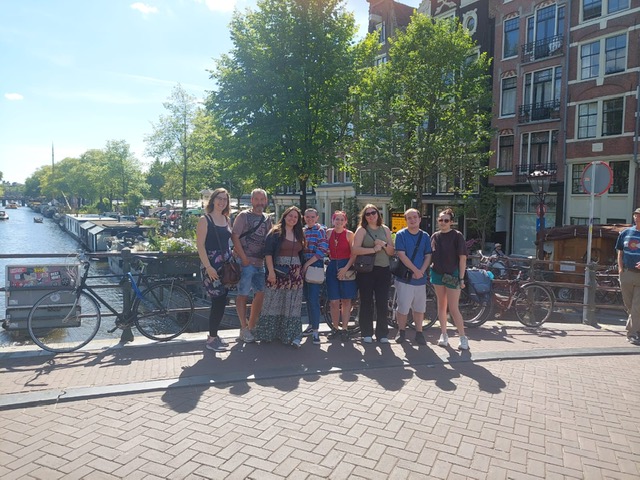
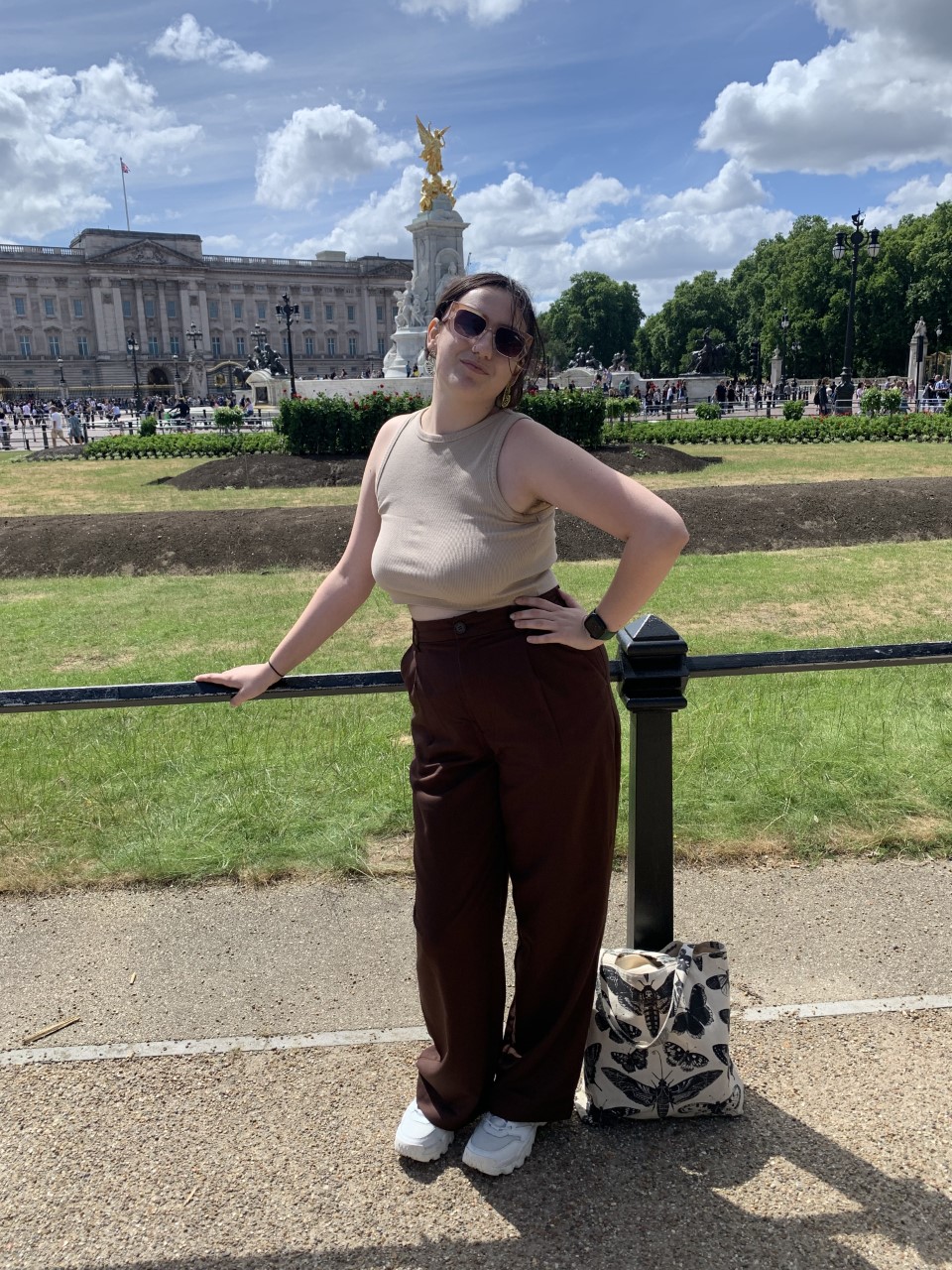
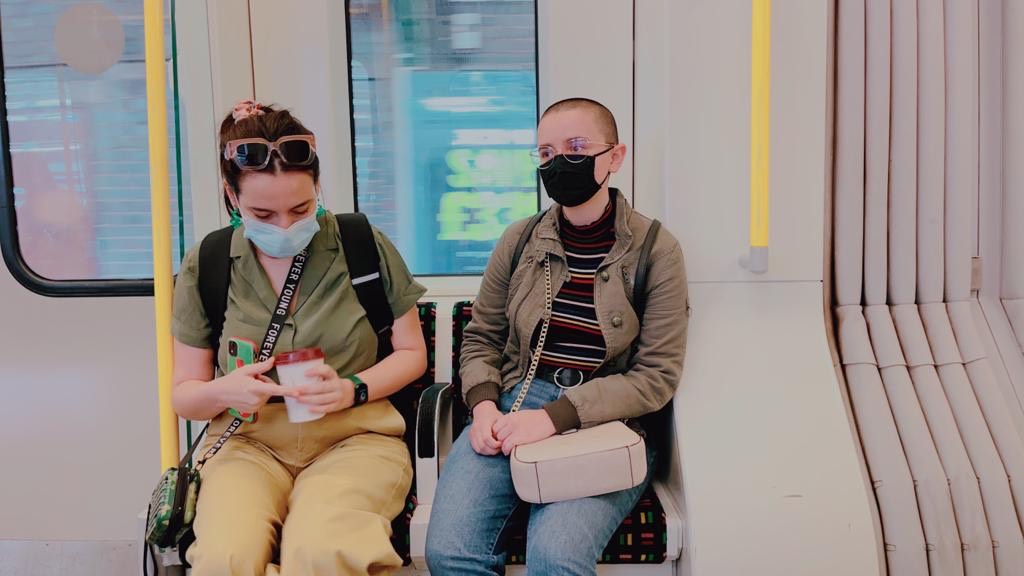
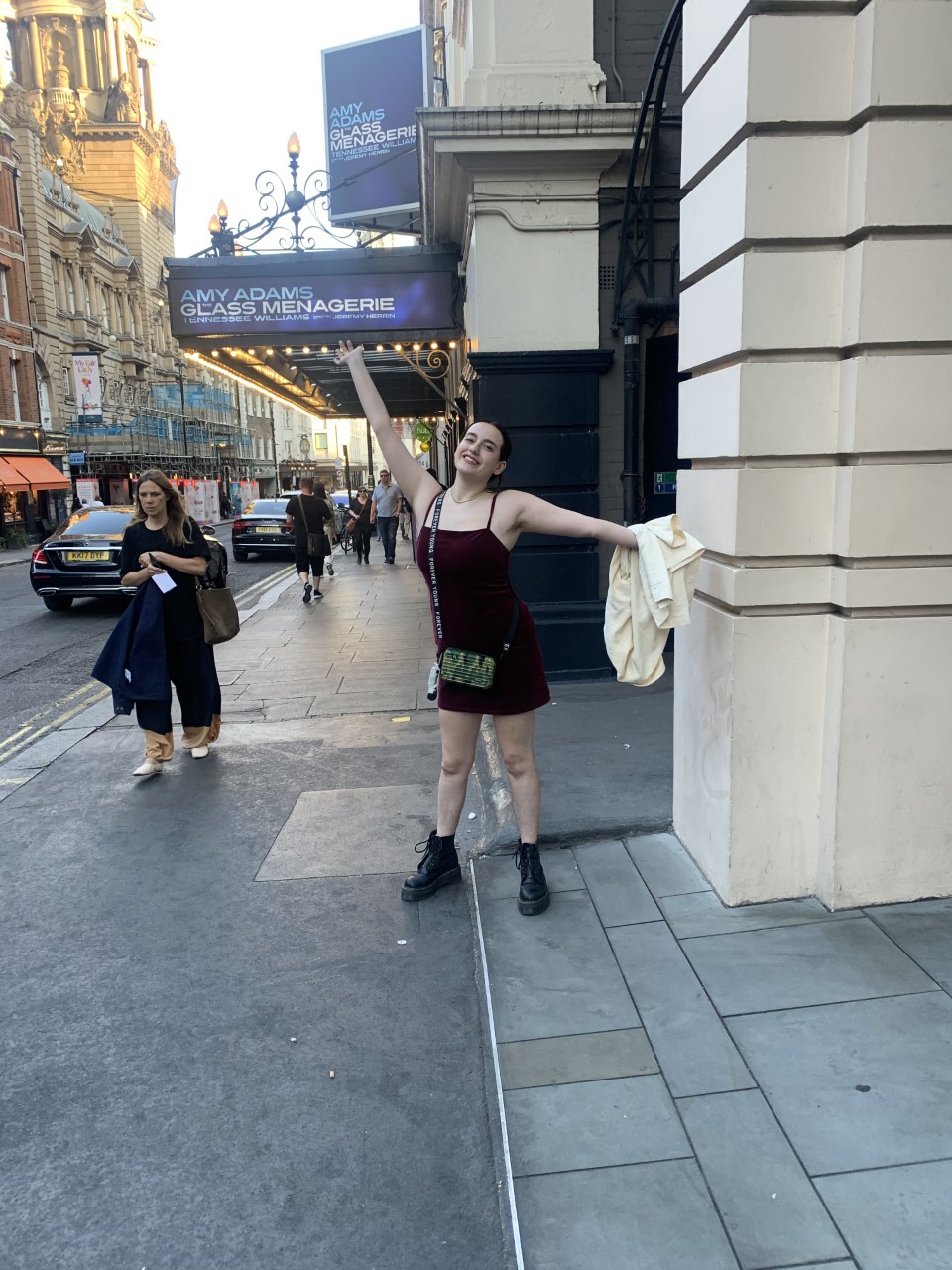
Queer theory is not only about sexuality and gender differences, but also brings forth the idea of intersectionality. Intersectionality is an important factor in understanding non-euro-traditional/ideal identities and how it has spread to the rest of the world. Intersectionality takes into consideration how each individual’s unique identity is within a spectrum between privileged and oppressed depending on their traits. For example, someone who is a black straight man may be opressed for their racial identity, but gains privlegde from their binary gender, heterosexuality, and able-body. On the other hand, someone who is white has that privilege, but if they are also LGBTQ and disabled, they face that kind of oppression and discrimiation. 1 in 3 LGBTQIA+ youth in the UK are homeless. According to a LGBTQIA+ youth homelessness survey in the UK, 12% of respondents of color felt supported by their extended family members (aunts, uncles, cousins or grandparents) while facing homelessness, compared to 18% of white respondents, and 14% of trans people, compared to 19% who aren’t trans. 21% of respondents with a disability were forced to do sexual acts against their will by family members before becoming homeless compared to 11% of those without a disability. The point is that intersectionality is a concept that encapsulates the many layers of an individual’s identity and how they are affected by each layer. This is important to understand as issues, such as homelessness, are increasing and can only be combated by taking this concept into consideration. Being surrounded by this culture creates a true understanding of how this works and has made it easier for me to think about how to apply it effectively in real life.
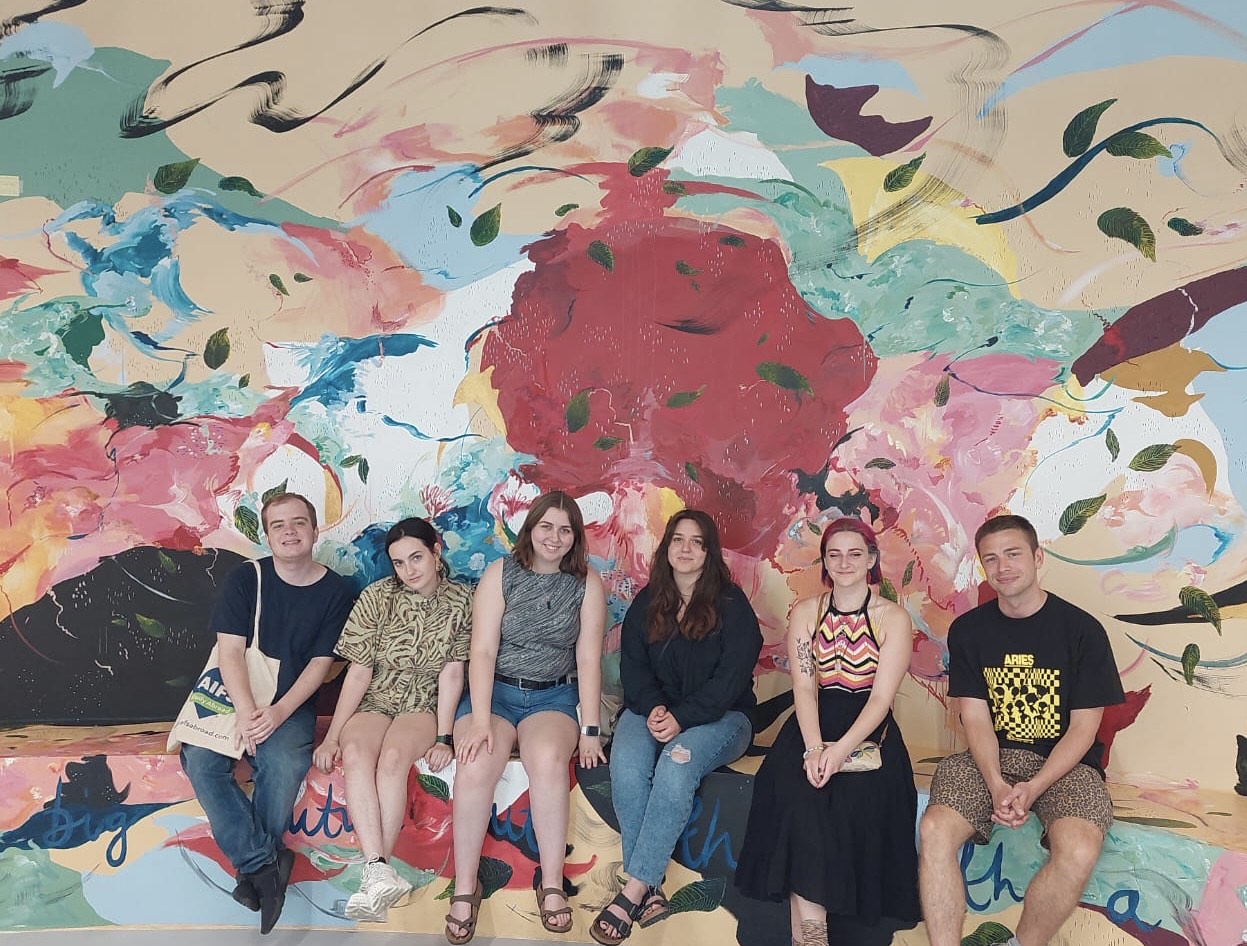
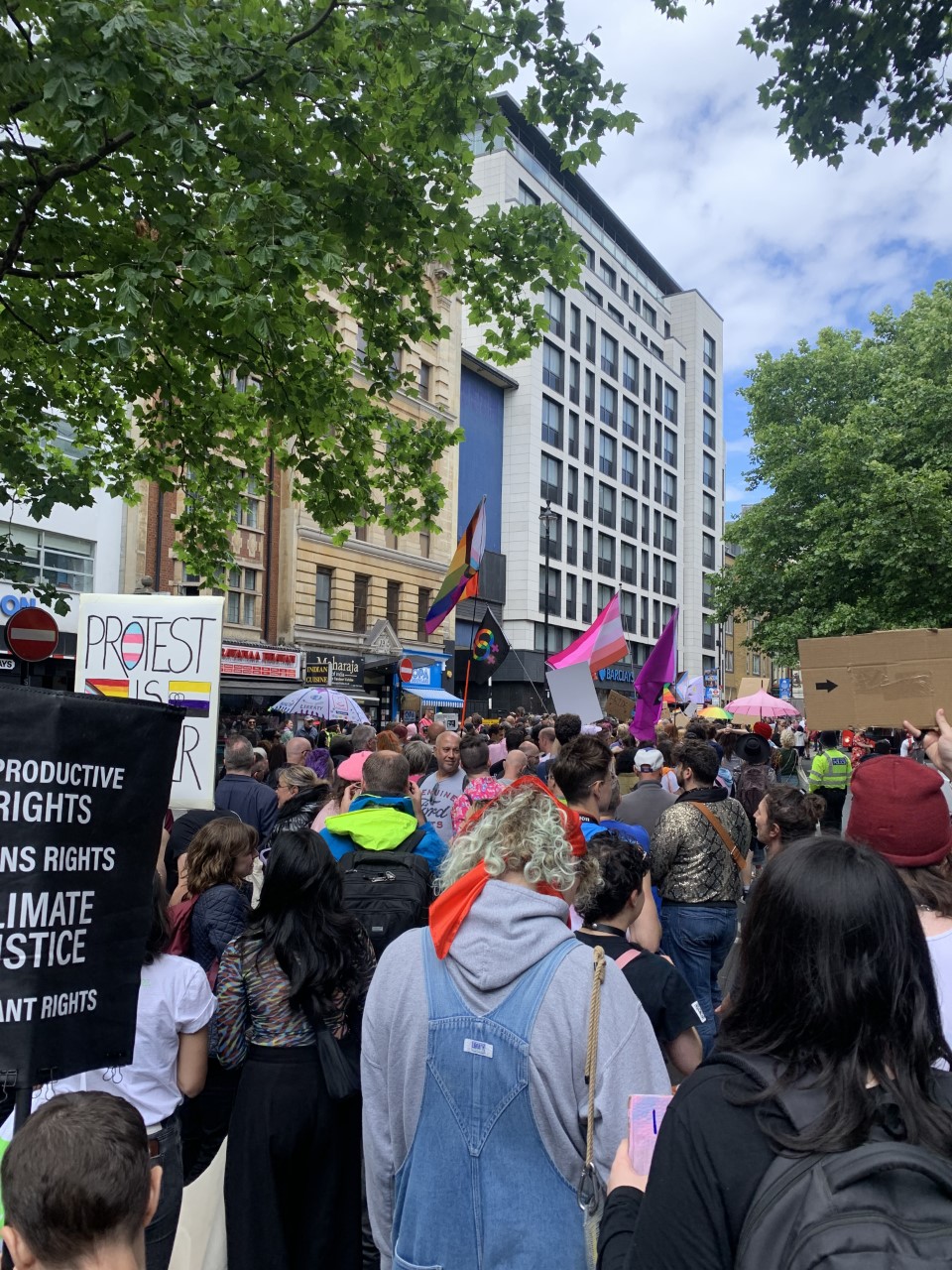
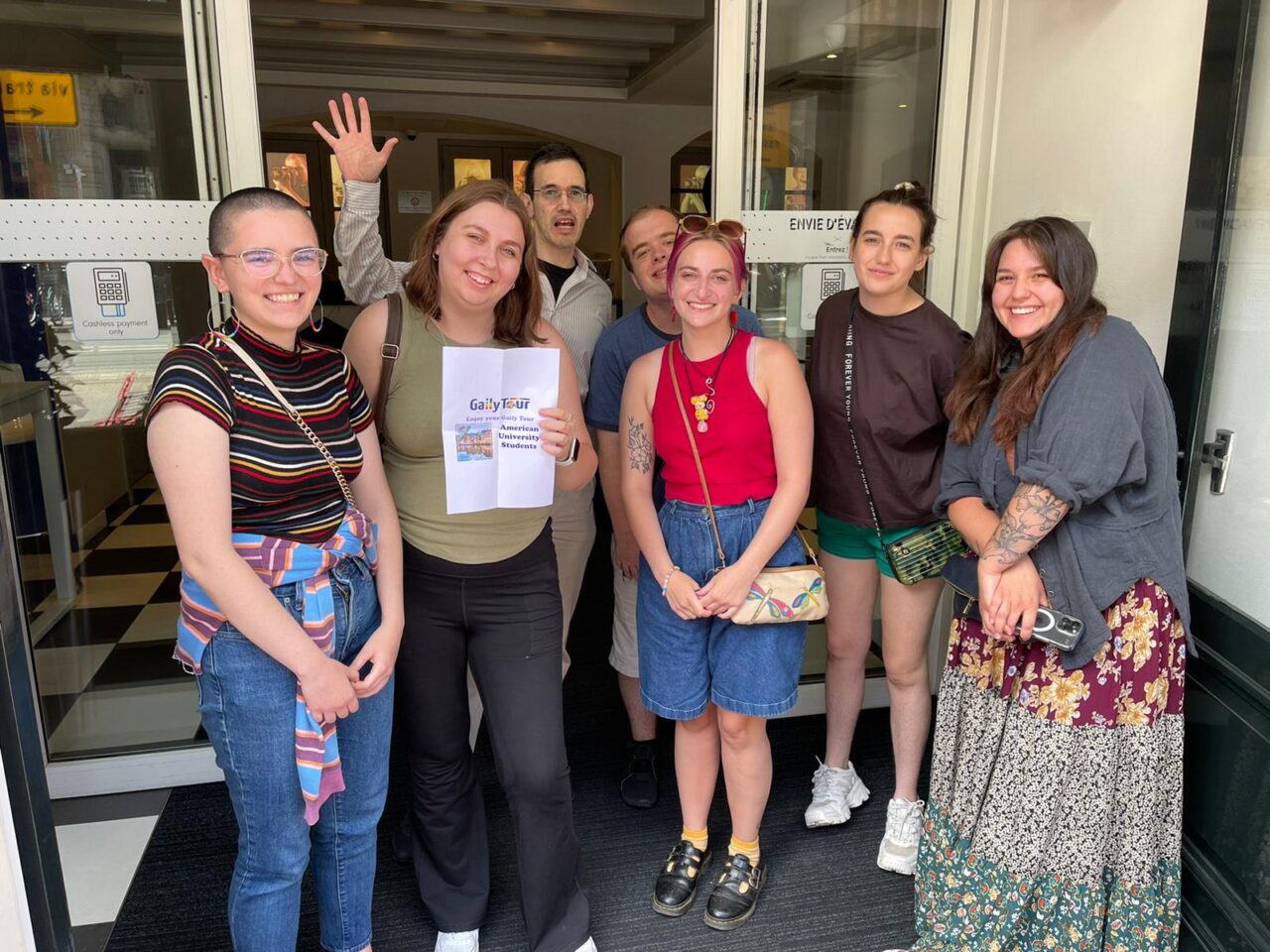
Britain really is the foundation of homophobic and anti-LGBTQIA+ idealologies. Colonialism spread these ideas and is the root of many less-developed region’s anti-LGBTQIA+ policies and attitudes, as they were relatively non existent until the colonizers indoctrinated a patriarchal system. Going to London and learning about history put me at the heart of the matter. I think that queer theory is going to change the world. There is a lot of work to be done to apply these ideas, and that’s why I chose this course, to increase my understanding in hopes that I may be one of the hands that helps dismantle the patriarchy.
Riley Husband (BS Psychology) spent summer 2022 interning abroad in London, England and Amsterdam, Netherlands through AIFS. Riley had the following to say about studying abroad, “Taking a course abroad is unique in that you are constantly learning by being surrounded by the subject and culture. It really makes learning fun, and I feel I have learned more in those 6 weeks than I have in some full semester classes.”
Share this post:
Leave a Reply